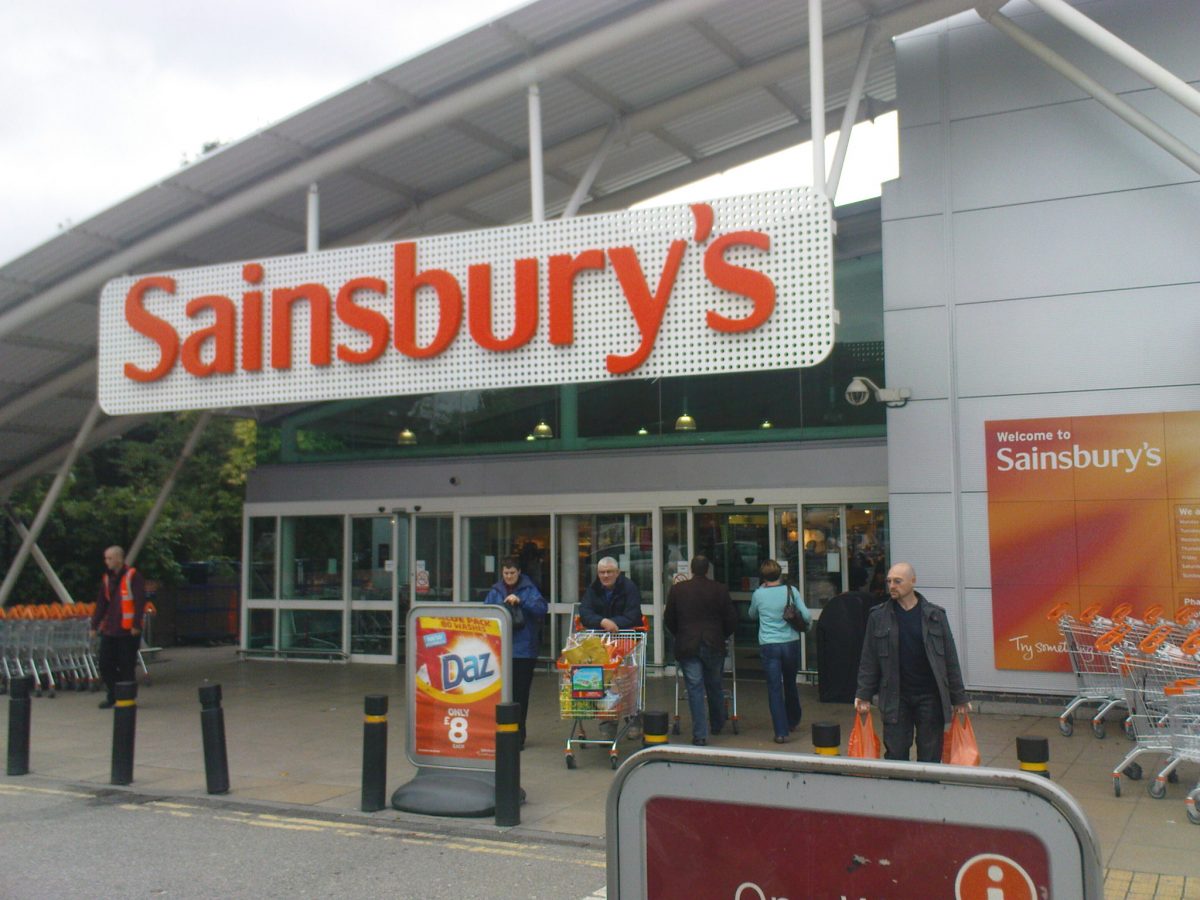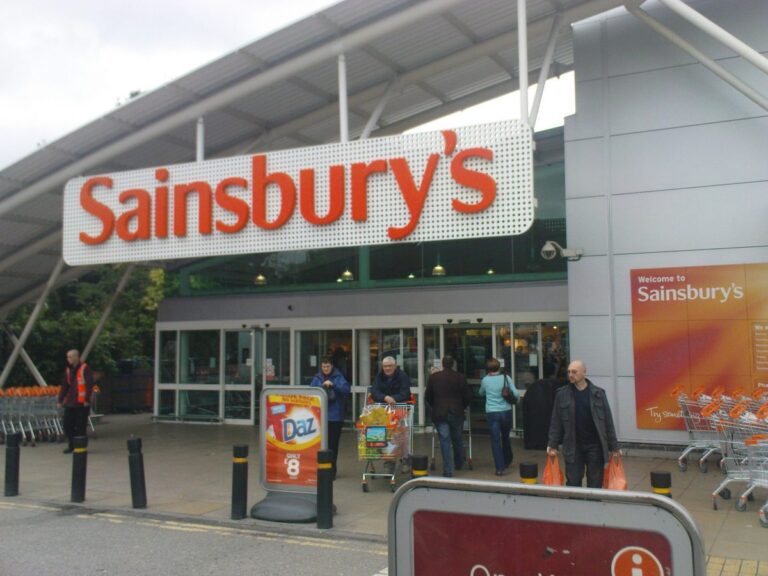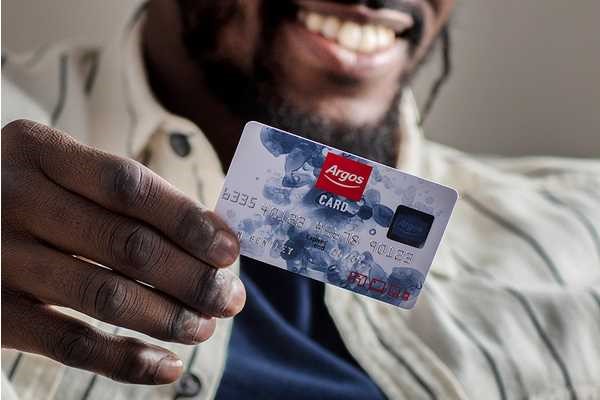J Sainsbury plc (LON:SBRY) has announced its first quarter trading statement for the 16 weeks to 27 June 2020.
· Grocery sales up 10.5 per cent
· General Merchandise sales up 7.2 per cent (including Argos sales up 10.7 per cent) and Clothing sales down 26.7 per cent
· Digital sales more than doubled
· Total retail sales up 8.5 per cent (excl. fuel) with like-for-like sales up 8.2 per cent (excl. fuel)
· Profit impact of COVID-19 expected to be more than £500m, broadly offset by business rates relief and stronger grocery sales, as previously outlined
Q1 Trading Performance
The COVID-19 pandemic continues to have a significant impact on our business and we are guided by three clear priorities: keeping customers and colleagues safe; helping to feed the nation and supporting our communities and the most vulnerable in society.
At our Preliminary results announcement in April, we set out our base case assumptions for the current financial year and we are pleased that our sales performance to date has been ahead of those assumptions, helped by good weather. We delivered double digit sales growth in Grocery, ahead of the market1, driven by very strong online growth. This builds on strong grocery momentum and market share gains over the last year, as we invest to lower our prices and improve our stores.
Our digital performance has been particularly strong, with sales more than doubling. Our ability to quickly respond to customers choosing to buy groceries, general merchandise and clothing online reflects the strength and flexibility of the digital and technology platforms we have built. From the beginning of the crisis, we chose to prioritise elderly, disabled and vulnerable customers for groceries online; sales grew by 87 per cent year-on-year and orders from around 370,000 to over 650,000 per week. Nearly 50 per cent of new groceries online customers are new Sainsbury’s customers. SmartShop, which lets customers scan their own groceries and use a separate checkout, reached 37 per cent of sales on average and exceeded 50 per cent in some stores2. We have also rolled out our one-hour grocery delivery service Chop Chop beyond London and it is now in 15 cities.
While all 573 Argos standalone stores were closed for the majority of the quarter, customers could shop with Argos online for home delivery and click and collect from Sainsbury’s stores. As a result of this, Argos performed very well, growing 10.7 per cent, with home delivery sales up 78 per cent and click and collect sales up 53 per cent. Lockdown measures started to ease towards the end of the quarter and we opened 174 stores across the UK and Ireland in phase one and will open 100 more in phase two in July.
Clothing and Fuel sales, whilst still down year on year, have started to recover more quickly than expected and our Financial Services business has an improved capital position versus the year end.
Simon Roberts, Chief Executive Officer, said: “The last four months have been extraordinary in so many ways and our colleagues have done an amazing job adapting our business. They have worked tirelessly to keep everyone safe, to help feed the nation and to support our communities and the most vulnerable in society.
“Our business has changed fundamentally from four months ago. We have more than doubled our weekly sales of online groceries in recent weeks, SmartShop now accounts for more than half of sales in some supermarkets and Argos sales were strong while operating as an online-only business for almost twelve weeks. Warm weather boosted food sales and sales in seasonal categories in Argos, but sales of clothing and fuel and trading in city centre Convenience stores were all significantly down year on year as a result of lockdown.
“We have worked really hard to listen and to respond to customers throughout the crisis. We have lowered prices on many key products as we continue to focus on lower regular prices. Our price position versus our competitors has improved in the quarter, Sainsbury’s key customer feedback scores are at record levels and we have gained market share.
“The coming weeks and months will continue to be challenging for our customers and our colleagues and we do not expect the current strong sales growth to continue. A number of the decisions we have made have materially increased costs but meant that we have done the right thing for our customers and set us up well for the future.
“Our colleagues have been exceptional and I feel incredibly proud of the job they have done day in day out and of their flexibility and adaptability during this crisis.”
Outlook
Sales growth has remained strong throughout the first quarter, ahead of the base case assumptions we detailed in April, particularly at Argos. This has been helped by good weather. Operating costs remain high, reflecting the costs of keeping customers and colleagues safe, significantly higher online participation, including prioritisation of elderly, disabled and vulnerable customers, and weak sales of fuel, clothing and general merchandise within Sainsbury’s stores.
We believe it is appropriate to remain cautious about the sales trajectory through the remainder of the year given the weather benefit to date and a likely further weakening of consumer spending. It remains impossible to predict the full nature, extent and duration of the impact of COVID-19 on sales and costs. Our base case scenario continues to underpin an expectation of broadly unchanged Group underlying profit before tax for the full year.
| Q1 2020/21 previously reported | Q1 2020/21 | Q1 2020/21Total | |
| Total sales growth % | 7 weeks to 25 April | 9 weeks to 27 June | 16 weeks to 27 June |
| Grocery | 12% | 10% | 10.5% |
| Total General Merchandise | 3% | 12% | 7.2% |
| GM (Argos) | 9% | 14% | 10.7% |
| GM (Sainsbury’s Supermarkets) | (22%) | 2% | (9.3)% |
| Clothing | (53%) | (10%) | (26.7)% |
| Total Retail excl. fuel | 8% | 9% | 8.5% |
| Fuel | (52%) | (60%) | (56.1%) |
Keeping our customers and colleagues safe
Our highest priority throughout the quarter has been to keep our customers and colleagues safe. We have made changes to all aspects of our business to achieve this, adding material costs. This includes:
– Providing full pay for extremely vulnerable colleagues until at least 31 July and full pay for vulnerable colleagues and those living with extremely vulnerable family members until 30 June
– Giving a thank you payment to 157,000 colleagues and front line managers, equivalent to 10 per cent of pay, for the four week period from 8 March
– Recruiting more than 25,000 colleagues to work in stores, as drivers and in distribution centres
– Initially restricting the number of products customers could buy in a single shop so that essential items were available to a larger number of customers and introducing priority shopping hours for NHS workers and elderly, disabled and vulnerable customers
– Temporarily suspending Argos two man delivery and changing operational processes such as Groceries Online deliveries
– Installing over 40,000 Perspex screens in Sainsbury’s and Argos stores to support hygiene and social distancing
– Closing our counters and cafes to focus resource on stocking and selling essential items and reducing opening hours and temporarily closing some stores to safely and effectively serve customers
– Limiting the number of customers allowed into shops at any one time to ensure social distancing and operating one-way systems in smaller stores
– Investing in TV, radio and print advertising to further support in-store social distancing measures
Supporting our communities and the most vulnerable in society
In these challenging circumstances, we have focused on ensuring that the most vulnerable in our communities can access food and other essential items. Highlights include:
– We have made almost four million grocery deliveries to more than 500,000 elderly, disabled and vulnerable customers since the start of the crisis
– Together with Sainsbury’s, Argos, Habitat and Nectar customers, we donated £4.1m towards vital emergency support for vulnerable people in the UK through our partnership with Comic Relief and Children in Need
– Donating £3m to Fareshare to source food to help over 5,000 frontline charities and community groups in England
– Accelerating supplier payments. We are working collaboratively with suppliers to support them with vital cash flow where needed, including immediate payment to at least 1,500 smaller suppliers
– Deciding not to take up the government’s offer of furlough payments or delaying VAT payment
– Donating 750,000 brand new items for men, women and children from our Tu clothing range towards local communities and charities via Comic Relief and our existing charity network
– Extending our partnership with WH Smith to 80 stores in NHS hospitals, which enables NHS workers to receive a 20 per cent discount on everything they buy, making it easier for them to shop for Sainsbury’s groceries
– Introducing school meal vouchers and Volunteer Shopping Cards, enabling others to shop on behalf of elderly, disabled and vulnerable customers who can’t shop for themselves
– Selling The Big Issue in stores and online, providing temporary support to vendors who are currently unable to sell on the street
Helping to feed the nation
Grocery
– Grocery sales grew by 10.5 per cent, continuing to outperform the market4 as customers switched to Sainsbury’s
– We lowered the prices of many key products in the quarter, improving our value relative to competitors
– Customer satisfaction scores improved significantly year on year, leading the main grocers on social distancing scores, which is currently a very important measure for customers
– We invested significantly in our digital offer, with Groceries Online sales up 87 per cent year-on-year and over 650,000 orders per week, up 75 per cent since the start of the pandemic. Click&Collect is proving particularly popular with customers, with sales up 13-fold compared to last year
– SmartShop participation reached 37 per cent of sales on average and exceeded 50 per cent in top-performing stores5
– We have rolled out Chop Chop, our 1-hour delivery service, to 41 stores, increasing our presence from one city to 15 cities
– Convenience sales were down 5 per cent, driven by very weak sales in city centre locations where trade is heavily driven by office workers and by the temporary closure of 26 convenience stores in city centre locations, partially offset by very strong sales growth in neighbourhood locations
– We have closed our fresh food counters and cafes in our supermarkets so that colleagues can focus on keeping essential food items on shelves. We are beginning to re-open some pizza counters where there is significant customer demand and no equivalent currently available in the aisle
General Merchandise
– All 573 Argos standalone stores in the UK and Republic of Ireland were closed from 24 March in line with government guidance around non-essential retail. Home delivery sales grew by 78 per cent and Click and Collect sales grew by 53 per cent during the quarter, driving total Argos sales growth of 10.7 per cent, demonstrating the strength of our digital capabilities
– Customers were able to collect orders in 307 Argos stores in Sainsbury’s, 173 collection points in Sainsbury’s supermarkets (of which 79 were opened during the quarter) and 186 collection points in Sainsbury’s Local stores
– Favourable weather helped to drive very strong seasonal sales in categories such as garden and outdoor toys and we were also able to respond to very high customer demand in categories such as personal computers, home office furniture, gaming, entertainment, home baking and arts and crafts
– We started to re-open Argos stores in line with individual government guidance. We currently have a total of 174 standalone Argos stores open across UK and Ireland, with 100 more opening in July
– In England and Wales, we are re-opening stores on a collection and returns only basis, in areas where customers can not currently easily access an Argos store in a Sainsbury’s supermarket
– While General Merchandise sales in Sainsbury’s stores declined, the trend improved through the quarter, reflecting strong seasonal demand and some normalisation of customer behaviour in stores
Clothing
– Clothing sales declined in the quarter but have shown encouraging signs of recovery during the latter half of the quarter, helped by Tu Online sales growth of 87 per cent and successful clearance activity. Our stock position is better than anticipated
– Categories such as loungewear, exercise wear, nightwear and kidswear have all performed well during the quarter
Financial Services
Our Financial Services outlook is in line with the base case scenario we outlined with our Preliminary Results statement:
– Our capital surplus over the regulatory minimum has increased during the quarter. At the end of May, including regulatory buffers, the Bank had around £335m of surplus capital, up from around £320m at year end. This reflects a decrease in our lending balances, more than offsetting the £30m COVID-19-related impairment provision increase required under IFRS9
– Liquidity has further strengthened since financial year end, with the bank holding £665m additional liquidity above the regulatory minimum, up £491m due to a strong savings performance and lower lending
– Travel Money bureaux remain closed and ATM transaction volumes, while starting to recover, remain below pre-COVID-19 levels
– Lower credit demand, along with prudent credit policy tightening actions and a focus on supporting Sainsbury’s customers, has driven a £455m (eight per cent) reduction in unsecured portfolios. Credit card spending has also reduced, although there are early signs of recovery
– Trading in Argos has been strong, with our store card activity supporting sales. Over 80 per cent of credit being extended on store cards is to existing customers
– A focus on cost reduction, together with lower transactional volumes, has reduced Q1 costs by 14 per cent year on year. We have reviewed investment spend for 20/21 and will reduce this by one third
– Emergency Payment Freezes are being extended to customers in need. The percentage of customers requesting the use of these facilities is materially lower than market average
Liquidity
– Our cash position is strong and we have chosen to fully repay the £500 million we prudently borrowed under the Revolving Credit Facility earlier in the year
Notes
A. All sales figures contained in this trading statement are stated including VAT from 2018/19 and in accordance with IFRS 15
B. Certain statements made in this announcement are forward-looking statements. Such statements are based on current expectations and are subject to a number of risks and uncertainties that could cause actual events or results to differ materially from any expected future events or results referred to in these forward-looking statements. Unless otherwise required by applicable law, regulation or accounting standard, we do not undertake any obligation to update or revise any forward-looking statements, whether as a result of new information, future developments or otherwise
C. A conference call will take place at 08:20. To listen to the audio webcast we recommend that you register in advance. To do so, please visit https://www.about.sainsburys.co.uk/investors prior to the event and follow the on-screen instructions. To view the transcript of the conference call go to https://www.about.sainsburys.co.uk/investors and follow the on-screen instructions in the results, reports and presentations section
D. J Sainsbury’s will announce its Interim Results for 2020/21 on 5 November 2020







































